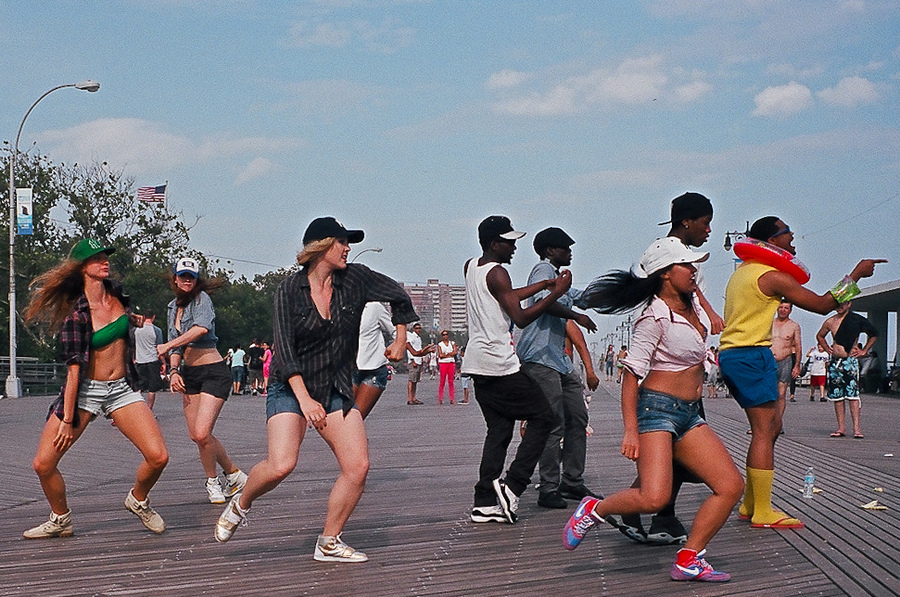Essay by Susan Terris
Finalist for the 2014 Talking Writing Prize for Advice Writing

In the "olden days," when I was still writing and publishing young adult novels, Stephen Roxburgh, my brilliant editor at Farrar, Straus and Giroux, told me emphatically that anyone who tries to write something to win a literary prize is doomed. I believe he’s right. Good writing is not about winning or losing.
Contrary to popular notions, it doesn’t help to know who the judge is. I once won a competition judged by Garrett Hongo—a poet I've never met and whose work is nothing whatsoever like mine. Nor is it of any particular value to write about the city or state where the magazine holding a contest is located. Cramming your entries with over-exposed topics—zombies, vampires, rip-offs of A Game of Thrones—has zero value, unless you insist on losing.
As a writer of fiction, poetry, or nonfiction, your job is to pick a great (maybe offbeat) subject and write about it with complexity. Endeavor to surprise, to stir hearts and minds. First and always, write to be excited by words spilling onto the page or entered onto the computer screen. Sometimes, when writing is going well, I feel the same adrenaline high I feel while hiking. Find and release these moments for yourself, not to please a competition judge.
But don't judge me too cynical when I say it seldom hurts if a submission includes arson, rape, or murder. In children's books, the ideal used to be the mythical title Lincoln's Doctor's Dog. Today, that would be Lincoln's Doctor's Dog: Castrated.
Seriously, though, there's no denying that in any genre, high drama may well catch the attention of editors or judges. In these times, that could mean anything about race, gender identity, immigration, feminism, climate change, or religion, as well as the perennial high-stress subjects of divorce, illness, aging, or death. But high drama doesn't work if it's preachy. Think restraint. Think about being subtle when you write, rather than confrontational.
Yes, a distinctive title helps. So does a dynamic opening line or sentence, paragraph, or stanza. Try to begin in medias res, not with backstory or scene setting such as "The Forest of Arden. Enter DUKE SENIOR, AMIENS, and two or three Lords, like foresters." (As You Like It, Act II. Okay for Shakespeare, but probably not for you.) Especially in a contest, you must grab the attention of the judges or the first readers first.
A little humor rarely hurts.
Hmmm. I should admit here to being the editor of Spillway journal as well as a writer, although Spillway doesn’t have a competition. I’m sitting now in a one-room cabin in Maine overlooking Penobscot Bay, where I’ve come to do nothing but write poetry for a week. Still, I’m writing this essay so I don’t have to work on my poem about Evelyn Nesbit, Harry Thaw, and Stanford White. In this tiny cabin, called the Acorn, a common housefly is buzzing. This is annoying, but the fly reminds me that compelling writing doesn’t skip over the small details that give life and verisimilitude. Flies are good. Also spiders or snakes, a cut finger, a high-flying kite, a rotten tomato, or the black-backed woodpecker just outside my window pecking the trunk of a bur oak tree.
(Note: Much good writing includes one paragraph or stanza for the editor to cut so he/she feels he/she is accomplishing something important. Query: editors: should the above paragraph be cut?)
The details matter, but never pad a piece of writing with extra words, stanzas, or pages thinking that will help give it substance. Substance is earned, and often shines more if excess is removed.
Write as if your life depends on it. Your life as a writer does. Write unafraid of exposing the dangerous and intimate ways your mind works. Then when or if you enter a competition, select a story, essay, or poem you've already written and feel strongly about and that feels finished.
If you fail to win, it really is no big deal. Writing is hard. Entering is hard, but being rejected for any prize should make you more determined to write with passion and insight. The best contest is the one you wage against yourself: the battle to keep writing better stuff—such stuff as dreams are made on. (Shakespeare again. The Tempest.) Those dreams may not win competitions, but they can boost the overall number of submissions you get accepted, which is the best way for your writing ambitions to come true.
Art Information
- "Boardwalk Dance" © Reuben Radding; used with permission.
 Susan Terris is the author of seven books of poetry, fifteen chapbooks, and three artist's books, including Ghost of Yesterday: New and Selected Poems (Marsh Hawk Press, 2013). Her most recent book is Memos (Omnidawn Publishing, 2015), and a poem from Memos was selected by Sherman Alexie to be published in Best American Poetry 2015.
Susan Terris is the author of seven books of poetry, fifteen chapbooks, and three artist's books, including Ghost of Yesterday: New and Selected Poems (Marsh Hawk Press, 2013). Her most recent book is Memos (Omnidawn Publishing, 2015), and a poem from Memos was selected by Sherman Alexie to be published in Best American Poetry 2015.
Her journal publications include the Southern Review, Denver Quarterly, Journal, North American Review, Talking Writing, and Ploughshares. A poem of hers from Field appeared in Pushcart Prize XXXI. She's editor of Spillway Magazine.
For more information, visit Susan Terris’s website.
Photo of Susan Terris by Margaretta Mitchell.
